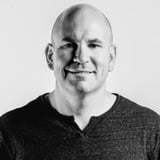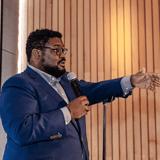Summary
We often hire researchers from a wide range of backgrounds. Most of the time, we need to hire fresh grads, interns, or market research experts. For these individuals with little practical experience in product/UX research and a non-research education background, we must bridge a skill gap. Yoel will talk about his experiments with a variety of ways for boosting the skills of his researchers. He'll talk about the framework he's built, as well as the advantages and disadvantages of each learning project he's tried.
Key Insights
-
•
Researchers with limited experience often focus too heavily on scientific rigor, which can hinder practical skill development.
-
•
Designers rely more on intuition, called knowing-in-action, and apply flexible design rigor rather than strict scientific methods.
-
•
Reflection-in-action, a cyclical process of acting, reflecting, reframing, and experimenting, is key to developing research intuition.
-
•
Mentorship through demonstration and imitation supports deeper learning than verbal instruction alone.
-
•
Regular pair research and 1-on-1 sessions that include active demonstration lead to faster skills growth in research teams.
-
•
Design rigor embraces complexity by using simple tools, flexible frameworks, and open concepts instead of prescriptive scientific models.
-
•
Stakeholder bias toward design over research is less impactful on team performance than internal learning practices.
-
•
Inclusive hiring and learning frameworks allow researchers without advanced degrees or formal backgrounds to succeed.
-
•
Creating dedicated internal research conferences and feedback loops fosters a continuous learning culture.
-
•
Adopting learning philosophies from Stolterman, Schön, and Dewey helped bridge the performance gap between research and design teams.
Notable Quotes
"My research team focused too much on scientific rigor when they tried to improve their skill."
"Designers perceive and use rigor in a more relaxed way, often referring to balance or even feelings or intuition."
"Researchers should submit more to design rigor than scientific rigor."
"Knowing in action is the intuition that designers like to refer to as the core of artistry."
"Reflection in action is a process where a surprise leads to questioning assumptions and trying different actions on the spot."
"Students cannot be taught what they need to know, but they can be coached to absorb it."
"Demonstrating and imitating embed reflection more deeply than verbal instruction alone."
"We should open our profession to fresh graduates and interns who may not have formal design research experience."
"The design team unknowingly implemented many effective learning philosophies that helped them improve faster."
"Reflection and action combined in learning pedagogy are far more liberating than a banking approach of instruction."
Or choose a question:














More Videos

"Collaboration should include stakeholders often not traditionally represented, like marketing, sales, and customer support."
Angelos ArnisNavigating the Rapid Shifts in Tech's Turbulent Terrain
October 2, 2023

"Spreadsheets might just be the best tool for everything in design ops."
John Calhoun Rachel PosmanBring your DesignOps Story to Life! The Definitive DesignOps Book Jam
October 3, 2023

"Look at your partnership with product and engineering as a design task—understand their pressures and needs."
Alfred KahnA Seat at the Table: Making Your Team a Strategic Partner
November 29, 2023

"When you accept differences and adjust, you can learn what you’re capable of."
Dan WillisEnterprise Storytelling Sessions
June 3, 2019

"Design can have an impact on the bottom line, but that puts pressure on design to justify its value economically."
John Maeda Alison RandAbout Design Organizations (Videoconference)
May 13, 2019

"Involving partners directly is powerful: tell me and I forget, show me and I may remember, involve me and I understand."
Anat Fintzi Rachel MinnicksDelivering at Scale: Making Traction with Resistant Partners
June 9, 2022

"Craft cultivates customer satisfaction, loyalty, and even forgiveness when functional issues arise."
Uday GajendarThe Wicked Craft of Enterprise UX
May 13, 2015

"The early sessions focused on definition: what is design ops, is it program management or strategy?"
Kristin SkinnerTheme 1 Intro
September 29, 2021

"We locked everyone in a room for months to review 1000 pages using the bond raising method—it worked because we aligned on principles and focused on the job."
Maish NichaniSparking a Service Excellence Mindset at a Government Agency
December 9, 2021
















